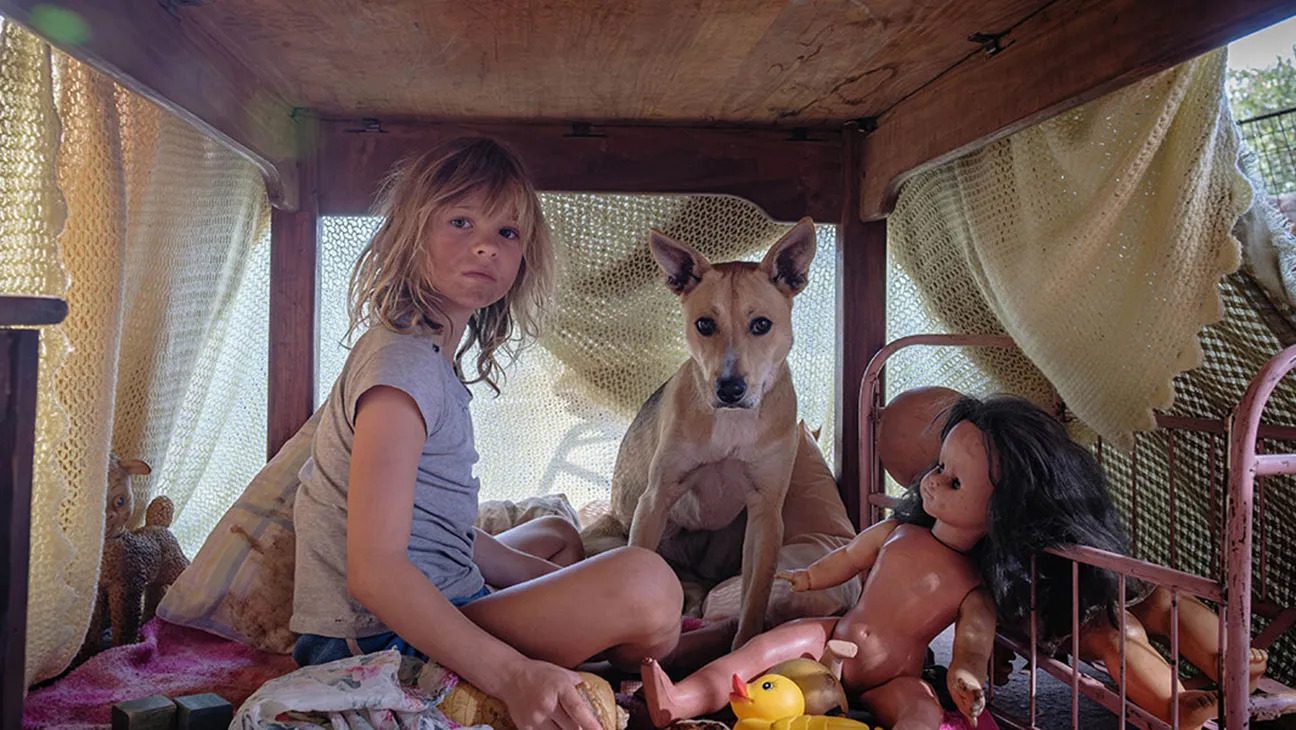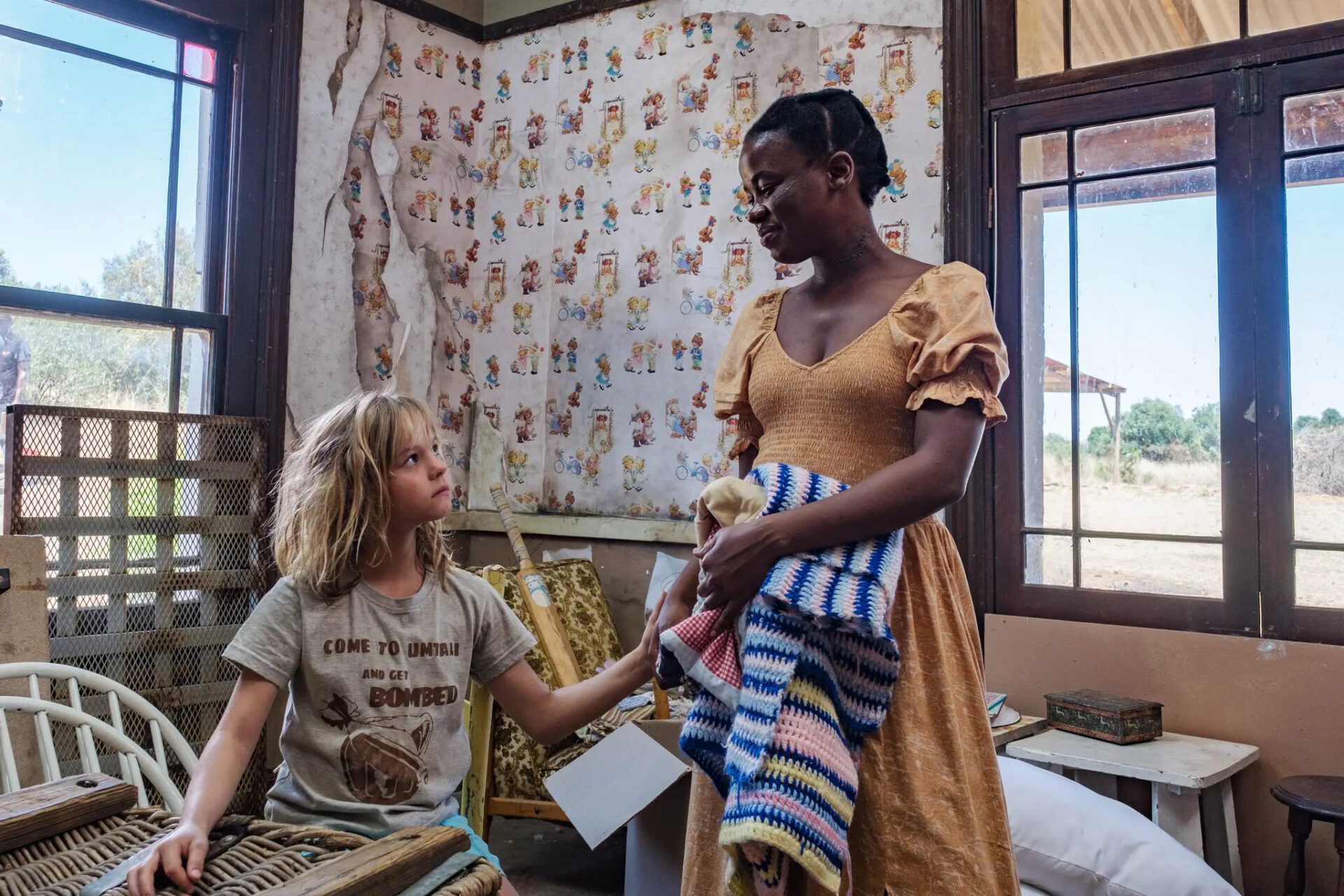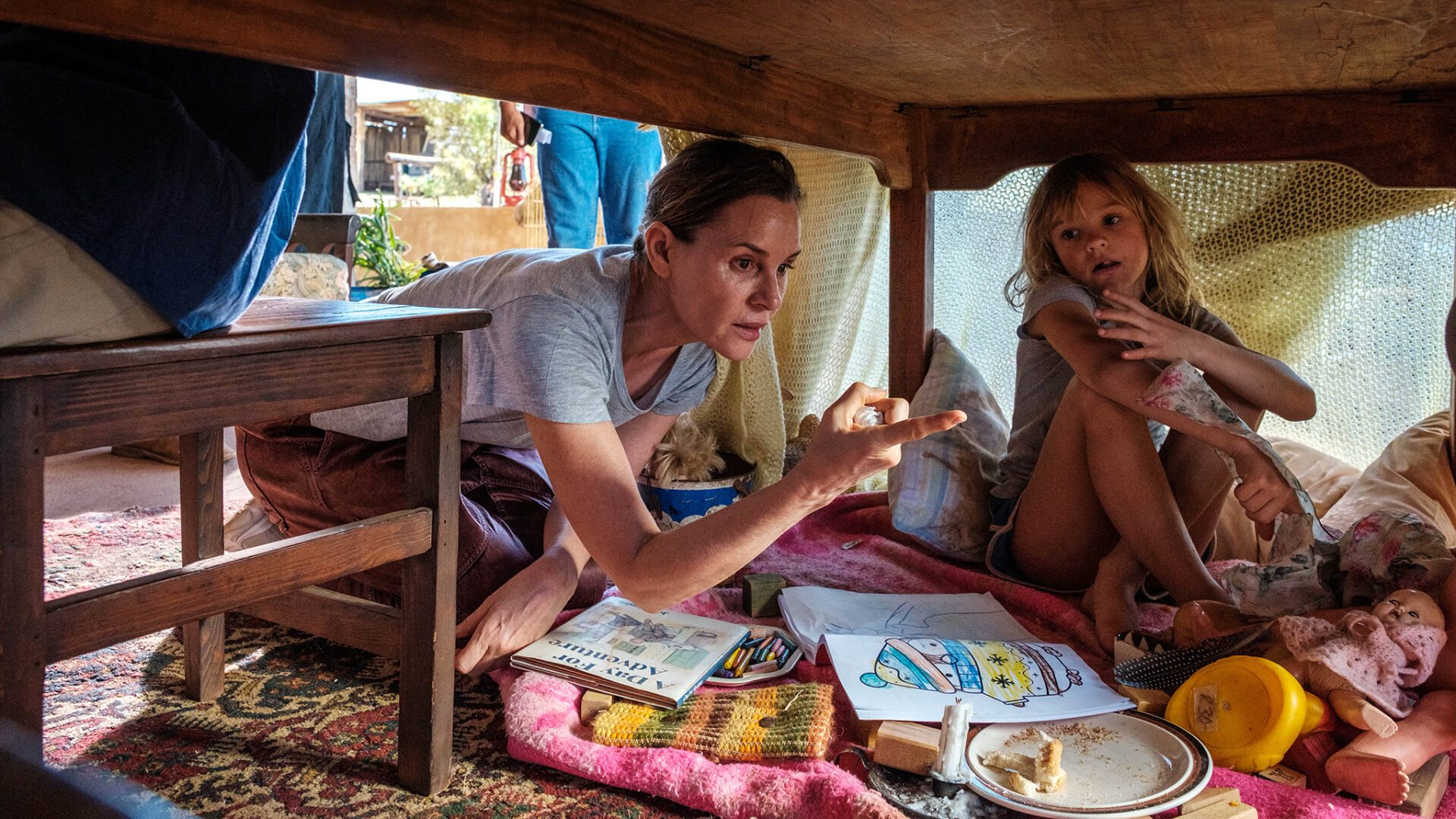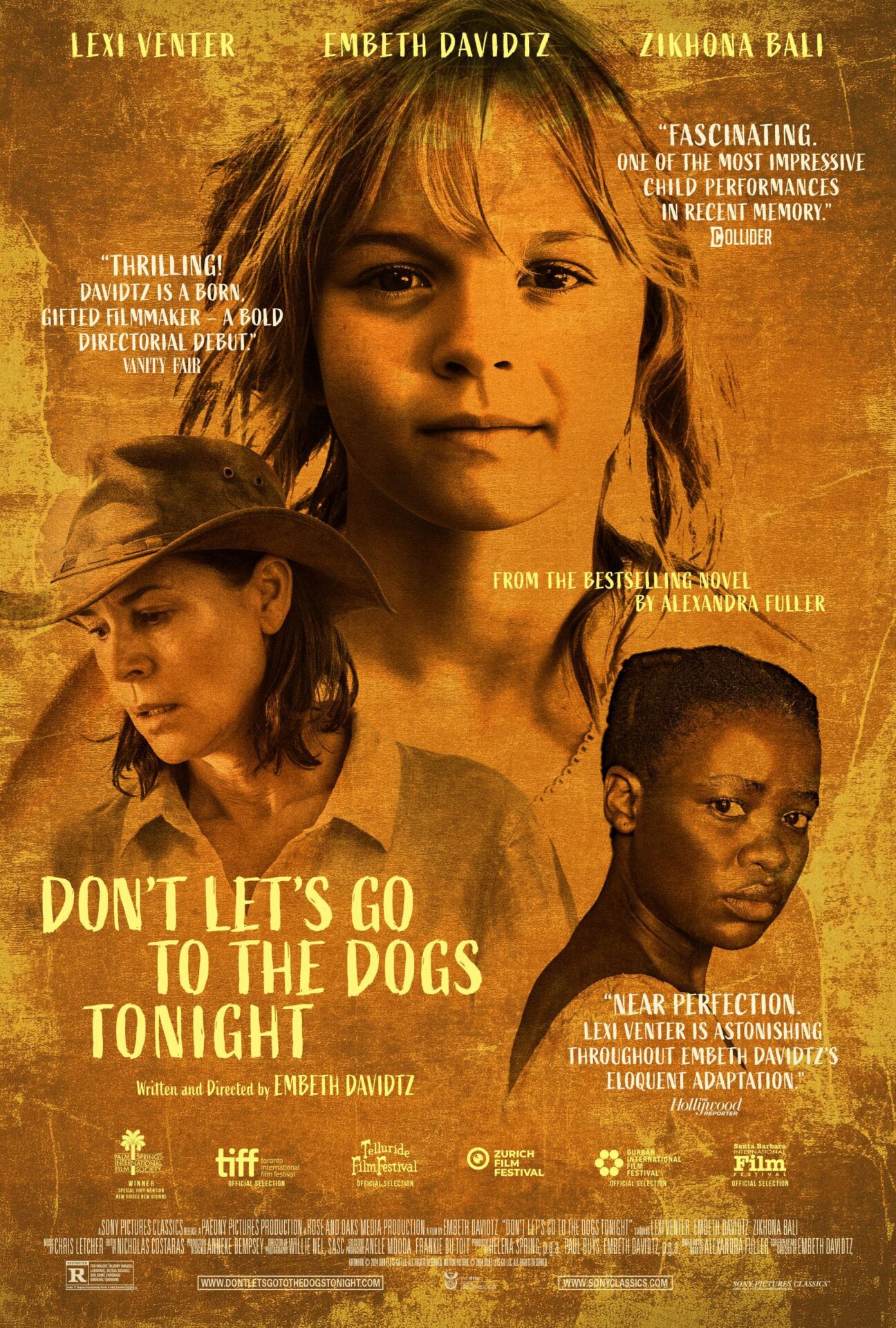
Introduction: A Hauntingly Personal Adaptation
Don’t Let’s Go to the Dogs Tonight, directed by Embeth Davidtz, compellingly adapts Alexandra Fuller’s memoir, set during the Zimbabwe War of Independence. Davidtz’s South African heritage profoundly informs her storytelling, allowing the film to intimately explore colonial dynamics, racial tensions, and familial conflict.
Anchored by a stellar performance from young Lexi Venter, the film offers a deeply emotional and unflinching look at childhood in a war-torn environment.
Table of Contents
Story: Innocence Lost in the Shadows of War
The narrative of Don’t Let’s Go to the Dogs Tonight centers on eight-year-old Alexandra “Bobo” Fuller (Lexi Venter), whose childhood unfolds amid the violence of Rhodesia’s civil war, as nationalist groups challenge British colonial rule. The film uniquely portrays the complexities of colonialism and racism through Bobo’s innocent yet revealing perspective.
Her family’s tense existence, marked by paranoia and strain, forms a microcosm of the broader societal conflicts simmering in the background. The storyline maintains an intricate balance, exposing harsh realities without compromising the authenticity of a child’s worldview.

Characters: Portraits of Survival and Struggle
Lexi Venter delivers a nuanced and captivating performance as Bobo, embodying the restless energy, innocence, and gradual awakening of a child growing up amidst turmoil. Embeth Davidtz, who also portrays Bobo’s mother Nicola, skillfully conveys the intense paranoia and emotional turmoil of a woman deeply entrenched in colonialist fears. Nicola’s rigid demeanor and constant vigilance epitomize the family’s tension-filled existence.
Rob van Vuuren portrays Tim Fuller, Bobo’s father, whose frequent absences as a soldier further exacerbate the familial tensions. Zikhona Bali as Sarah provides the warmth and emotional nurturing absent from Bobo’s household, while highlighting the stark racial and social disparities. Shilubana N Fumani as Jacob adds critical depth to the narrative, illustrating community-level anxieties about associating with the Fuller family. Anina Reed as Vanessa Fuller, Bobo’s elder sister, navigates her own challenges, subtly addressing themes of vulnerability and predation.
Direction: Davidtz’s Sensitive and Self-Aware Debut
Embeth Davidtz shows remarkable sensitivity and awareness in her directorial debut of Don’t Let’s Go to the Dogs Tonight, masterfully adapting Fuller’s complex memoir without sensationalizing or diluting its potency. Her approach delicately balances emotional intensity with a clear-eyed critique of colonial privilege.
Davidtz thoughtfully refrains from moralizing or oversimplifying, allowing the narrative to unfold through Bobo’s perspective, revealing innocence and ignorance alongside moments of harsh realization.

Technical Details: Capturing Turmoil and Tranquility
Don’t Let’s Go to the Dogs Tonight’s cinematography skillfully juxtaposes the harsh realities of war with the serene beauty of the Rhodesian countryside, creating a visual metaphor for the conflicted emotions of the characters. The subtle musical score underscores key emotional beats, further immersing audiences into Bobo’s troubled world.
The inclusion of authentic black-and-white photographs of the real Fuller family during the closing credits enhances the film’s realism and emotional depth, bridging historical context with personal narrative.
Final Thoughts: A Profound Reflection on Innocence and Identity
The film challenges viewers to grapple with colonial legacies through a child’s perceptive innocence. While Don’t Let’s Go to the Dogs Tonight‘s unflinching portrayal of familial dysfunction and racial tensions may unsettle some viewers, it ultimately provides powerful insights into historical and personal reckonings with identity and belonging.
Davidtz’s ambitious and emotionally resonant debut establishes her as a filmmaker of significant promise, with Lexi Venter’s remarkable performance at the heart of its narrative power.
About “Don’t Let’s Go to the Dogs”
Synopsis: “Don’t Let’s Go to the Dogs Tonight” thrusts us into the tumultuous world of 8-year-old Bobo, whose childhood unfolds on her family’s Rhodesian farm, now Zimbabwe, as the Bush War rages to its bitter end. Set against this violent backdrop, and seen through her eyes, we witness the family’s desperate attachment to Africa’s soil and the deep, festering scars of a war that reshapes both land and soul.
Director: Embeth Davidtz
Writers: Embeth Davidtz, Alexandra Fuller
Cast: Lexi Venter (Alexandra ‘Bobo’ Fuller), Embeth Davidtz (Nicola), Zikhona Bali (Sarah), Anina Reed (Vanessa Fuller), Shilubana N Fumani (Jacob), Rob van Vuuren (Tim Fuller)
Rated: R for violent/bloody images, language, sexual assault, and some underage smoking/drinking.
Runtime: 1h 38m
Releases: July 11, 2025

he/him • aapi • intj • geek • photographer • journalist • podcaster • martial artist • foodie • dj • cinephile • gamer • traveler






























